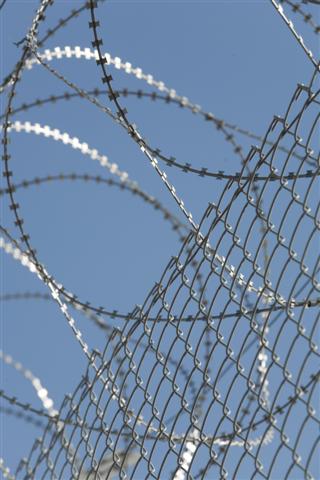 Theft is a growing problem. PHOTO: SHUTTERSTOCK |
An unsavoury professional organisation appears to be stealing forklifts at will and shipping the purloined equipment to distant destinations without fear of getting caught.
"We have noticed an increasing trend of forklifts being stolen from facilities," says Trooper Kevin Bletz with the auto theft unit of the Pennsylvania state police bureau of criminal investigation. "We need to get corporate security to step up measures" to prevent the thefts.
In combating heavy equipment theft, National Equipment Register Inc (NER) of Jersey City, New Jersey aims to share information and collaborate with law enforcement agencies, insurers, owners and original equipment manufacturers. "We have seen a significant increase in forklift thefts since late 2007," says David Grant Mossman, NER senior analyst. "We see recovery of about (0.5%) of stolen forklifts, and we only know what is happening to a small number of machines."
Among recent losses, thieves removed forklifts worth about USD43,000 from a Turbot Township warehouse of Milton Transportation Inc overnight on 26-27 February. The perpetrators pried open a garage door to get inside the warehouse.
The Milton, Pennsylvania-based common carrier of general commodities lost three propane-powered Hyster forklifts with 5,000-pound (2,250kg) lifting capacities, says Rick Bowersox, vice president of finance with the firm. Milton Transportation intends to boost security and is listening to suggestions about protection with global positioning systems (GPS).
"There is an organisation out there that seems to be doing these kinds of things" in Pennsylvania, surrounding states and elsewhere, Bletz says.
The typical mode of operation for the professionals involves targeting facilities with no surveillance, no security force and no overnight deterrence. "Bad guys are doing their homework," Bletz notes.
State police suggest that Milton Transportation and others consider installing hidden wireless GPS units in forklifts. "With hidden GPS in cars, the recovery rate is almost 100%," says Bletz, who is stationed in Montoursville, Pennsylvania.
LoJack Corp of Westwood, Massachusetts is among the providers of wireless tracking and recovery systems for mobile assets.
NER notes that a lack of due diligence in the used-equipment market contrasts with that for cars. The buyer and seller of a car exchange title documents, and a commercial web-based service such as Carfax Inc of Centreville, Virginia can report vehicle histories. Until 2002, nothing like this existed in the used-equipment market, NER says.
"Heavy equipment often has little physical machine or site security, is valuable and is easy to sell," according to NER. "The low recovery rate is a clear indication of the low risk for a thief."
NER's Mossman cites some destinations for forklifts stolen in the US: recycling facilities across the US dealing with paper and lightweight materials; the West Coast commercial fruit industry including cherry orchards and fruit processing plants; and sites in China and South Korea.
"Auctions are recording a lot of buyers from those (Asian) areas," Mossman says. In most cases, "the end-user may not know" the equipment was stolen.
Law enforcement observers suggest that exporting forklifts from the US may fill a need in Asia for machines of higher quality and more durability than those forklifts made in Asia.
"United, Hertz and Sunbelt have experienced losses," Mossman reports. He was referring to operations of United Rentals Inc of Greenwich, Connecticut, the equipment rental subsidiary of Park Ridge, New Jersey-based Hertz Corp and Sunbelt Rentals of Fort Mill, South Carolina, a subsidiary of Ashtead Group plc.
"In the past, we saw the theft of a lot of rough-terrain forklifts," Mossman says. That began to change in late 2007 with a targeting of Class 5 warehouse forklifts.
He identified some "hot (US) cities" for forklift thefts: "all around Pittsburgh, the Baltimore-DC corridor, Phoenix, San Diego, Los Angeles and Portland, Oregon".
NER lacks in-depth data on forklift thefts and recognises its forklift records are "not as comprehensive as our data on equipment like backhoes, loaders (and) excavators", Mossman says. "Much of the lift equipment losses get lumped into a miscellaneous category and are not reflected accurately in these statistics."
In any case, NER estimates that forklifts account for about 2.1% of total thefts of equipment. The top states for losses include Pennsylvania, 19% of total reported forklift losses during 2008; California, 16%; Florida, 10%; Maryland and Virginia, 10%; New York and New Jersey, 7%; and Illinois, 7%.
Mossman suggests forklift owners post report thefts online with NER for quality control and search against auction and sale records; communicate within the industry to prevent theft, raise awareness and watchfulness for stolen machines being sold, exported or serviced; and keep accurate machine records with serial numbers.
"Be sure recorded numbers reflect what is actually on the machine," he says. "Most police systems require an exact match. NER can assist with this."